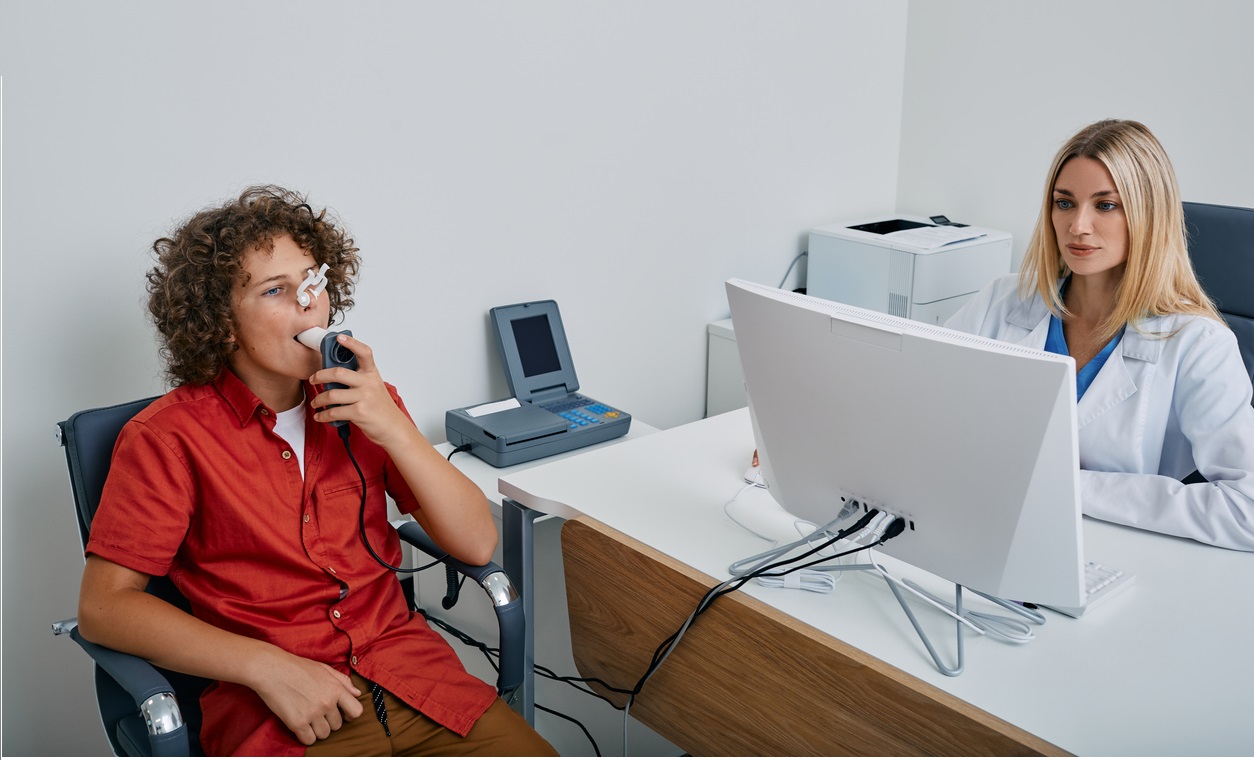Zephyr valves are tiny, one-way devices that help people with severe COPD or emphysema breathe...
Read More
PFTs are vital tools for evaluating lung health and diagnosing chronic respiratory conditions. If you have an upcoming PFT, you might have questions about what to expect and how to prepare. In this article, we answer some of the most common questions about PFTs to help you feel informed and at ease about the process.
“A pulmonary function test (PFT) is a noninvasive test that measures how well your lungs are working,” said Nicholas Roy, D.O., a pulmonologist at Inspira Medical Group Pulmonary. “These tests evaluate various aspects of lung function, including the volume of air inhaled and exhaled, the speed of air expulsion and how effectively oxygen moves from the lungs to the bloodstream.” PFTs help your doctor better understand your respiratory health and help diagnose chronic conditions such as asthma, COPD and pulmonary fibrosis.
To ensure test accuracy, avoid heavy meals, smoking, caffeine and strenuous exercise before your PFT, and wear comfortable clothing that doesn't restrict your breathing. If you have an inhaler or take other respiratory medications, your doctor will provide specific instructions for use before your test, as these may also affect your results.
“During a PFT, a respiratory therapist guides you through various breathing exercises while a technician monitors your lung function,” said Dr. Roy. “The test takes place in a specialized room with equipment that measures different aspects of your lung capacity and efficiency.” The technician will explain each step and ensure you are comfortable throughout your appointment.
There are several types of PFTs, each assessing different aspects of lung function:
“Most people find PFTs straightforward and relatively painless,” said Dr. Roy. “You may feel slightly breathless or tired from some breathing exercises, but discomfort is usually minimal and temporary.” Your respiratory therapist will be with you throughout for support and can pause the test if you need a break.
The duration can vary depending on the tests scheduled, but most appointments take 30 to 60 minutes. Your care team can tell you an estimated appointment duration before your visit so you can plan accordingly.
PFT results are usually available shortly after the test. Your doctor will review the results with you, explain what they mean for your lung health and discuss necessary follow-up steps or treatment options.
Early detection of chronic lung conditions through PFTs can lead to more effective interventions and better outcomes. Learn more about respiratory health and PFTs at Inspira Health.

Zephyr valves are tiny, one-way devices that help people with severe COPD or emphysema breathe...
Read More
Pneumonia is a lung infection that can range from mild to life-threatening. Learn the common causes...
Read More
Sue and Ron Caltabiano, ages 69 and 71, were each diagnosed with chronic obstructive pulmonary...
Read More